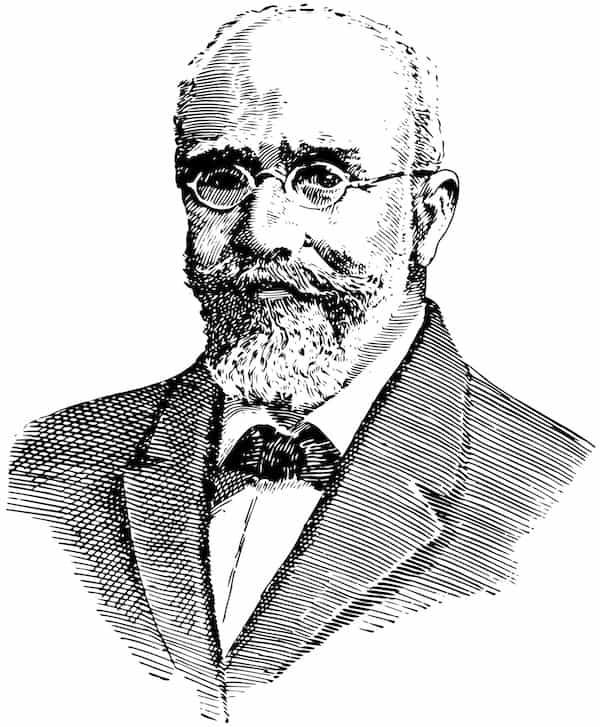Eleftherios Venizelos

Eleftherios Kyriakou Venizelos was born on the 23rd of August 1864 on the Greek island of Crete and died on the 18th of March 1936. He was a Greek statesman and a prominent leader of the Greek national liberation movement. As leader of the Liberal Party, he was elected to the position of Prime Minister eight times and served the country between 1910 to 1920 and then again between 1928 and 1933. Venizelos is credited as being the founder of modern Greece due to his political achievements.
A History of Eleftherios Venizelos
Eleftherios was born in Mournies near Chania in what was then an Ottoman ruled Crete. His father, Kyriakos Venizelos, was a Cretan merchant and revolutionary who’d fled, along with the rest of the family, to Syros when the Cretan revolution broke out in 1866. Eleftherios and his family stayed in Syros until 1872, when the Ottoman rulers granted his father amnesty.
During his teenage years, Eleftherios went to school at Ermoupolis in Syros before enrolling at the University of Athens Law School where he acquired a degree in Law. In 1886 he returned to Crete and began work as a lawyer in Chania before entering into the political arena during the elections of 1889 as a member of the liberal party. Politics at this time in Crete were turbulent to say the least and permeated by constant revolutions as the Greek population fought for freedom from the Ottoman Empire.
By 1897 violence and disorder were escalating due to massacres of Christians by Muslims who favoured Ottoman rule. The Greek government were forced to act and sent warships and soldiers to defend Cretan Greeks. A force of more than 2,000 men landed at Kolymbari in February 1897 with the aim of taking the island back under Greek control.
Venizelos headed to Malaxa, near Chania, where he established himself as the leader of a group of about 2,000 rebels. He proposed an attack on Turkish forces at the town of Akrotiri to aid Greek forces. Venizelos’ actions and heroism during the subsequent skirmishes become myth still spoken about in Greek poems today.
On March the 2nd 1897 the fighting stopped and it was proposed that Crete became an autonomous state under the suzerainty of the Sultan. This was rejected by Greece, but the subsequent Greco-Turkish war was a disaster for the country and led to Crete being forced into the deal by The Great Powers of Britain, France, Russia, and Italy.
During the negotiations, Venizelos came to prominence leading to him being appointed minister of Justice to Prince George of Greece, the second son of King George I of Greece, who was High Commissioner of the island.
Soon, however, disagreements between Venizelos and Prince George began to emerge leading to Venizelos repeatedly submitting his resignation. Tensions came to a head in 1901 when Venizelos was dismissed for “without any authorization, publicly supported opinions opposite of those of the Commissioner”. This wasn’t the end of Venizelos’ political career, however, and he immediately assumed the leadership of the opposition where his political manoeuvrings resulted in a virtually paralyzed leadership and the Revolution of Theriso.
The Revolution of Theriso
On 10 March 1905, rebels began to gather in Theriso under the leadership of Venizelos with the aim of creating a political union with Greece. The High Commissioner responded by saying that military force would be used if necessary. Unfortunately for him more and more of his deputies joined the rebellion and, despite the intervention of The Great Powers, the proposals of Venizelos were eventually agreed to and Ottoman rule in effect ended. A new assembly was convened, and Venizelos was elected Prime Minister.
Greek Political Power
In May 1909, officers in the Greek army lost patience with the Greek government and created the Military League. The pressure on the government became insurmountable and it was forced to resign. After a period of deadlock, the Military League invited Venizelos to come from Crete to become leader of all Greece.
Despite King George I fears that Venizelos ideas were dangerous, an election was ordered in which the majority of seats were won by independents. Venizelos was recognized as the leader of the independents, which formed together as the Liberal Party, as such making him the country’s leader. To galvanise the country, a new election was called in which Venizelos’ party won 307 seats out of 362, allowing Venizelos to form a legitimate government.
Over the next few years, Venizelos began a radical reform program aimed at promoting social ideologies, education, individual freedoms, and literature. He continued to promote these ideals through two Balkan Wars and the First World War, where he led Greece into an alliance with the Allied Powers against the Central Powers.
During his time in power he survived two assassination attempts, an election defeat in 1920, and a period of self-exile before he returned to power in 1928. It is during this second period in power that Venizelos perhaps had his greatest achievement in politics with the Greek reconciliation with Turkey.
The Great Depression of the early 1930s, however, hit Venizelos and his party badly and he was defeated for a second and final time at the ballot box in 1933 leading to him once again becoming an exile from the country he loved.
Eleftherios Venizelos Death
Not long after relinquishing his leadership in Greece, Venizelos headed for Paris. On 13th of March 1936 he suffered a stroke and was rushed to hospital. Five days later he died. His body was taken back to Chania in Crete where he was buried.
